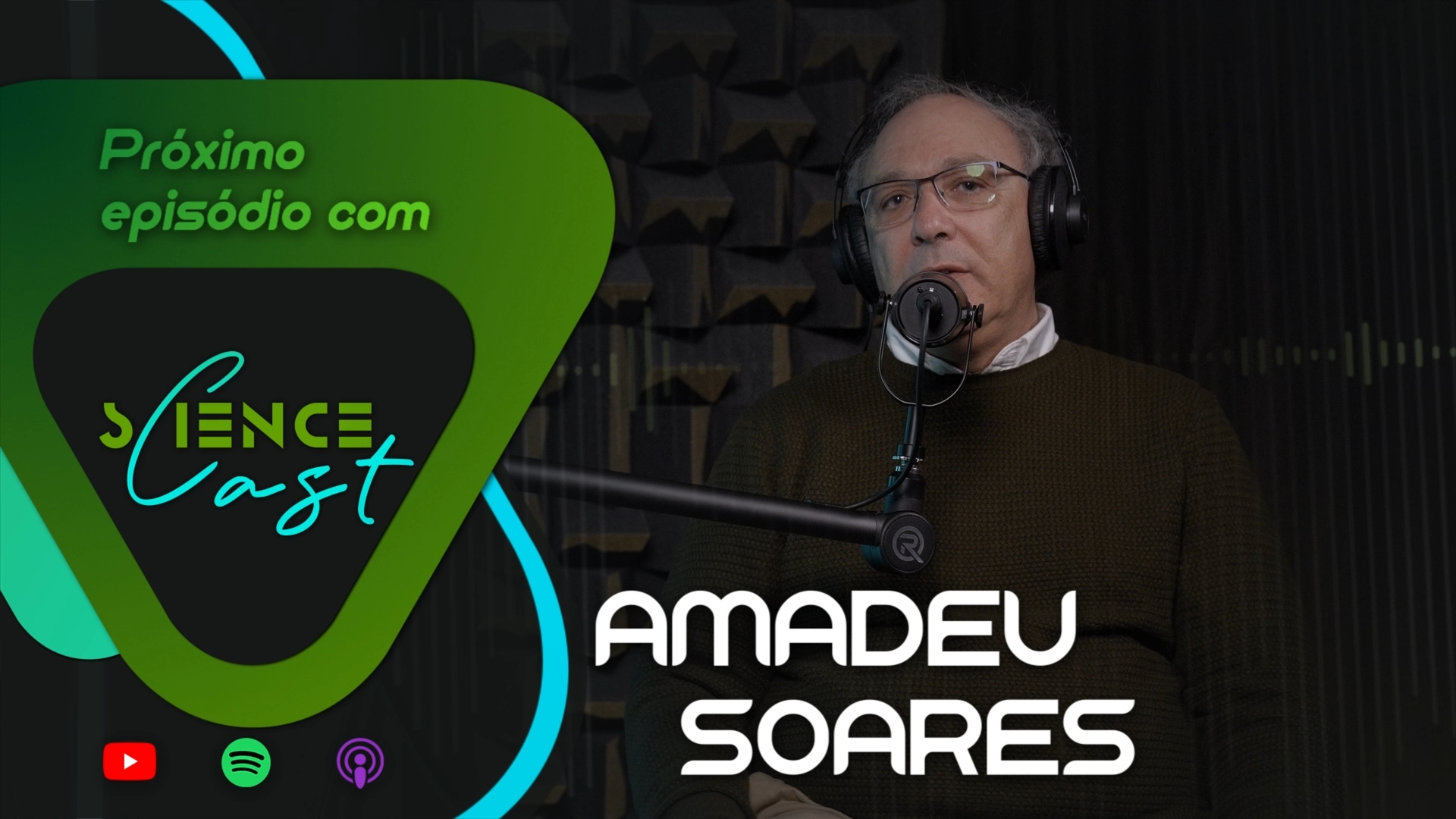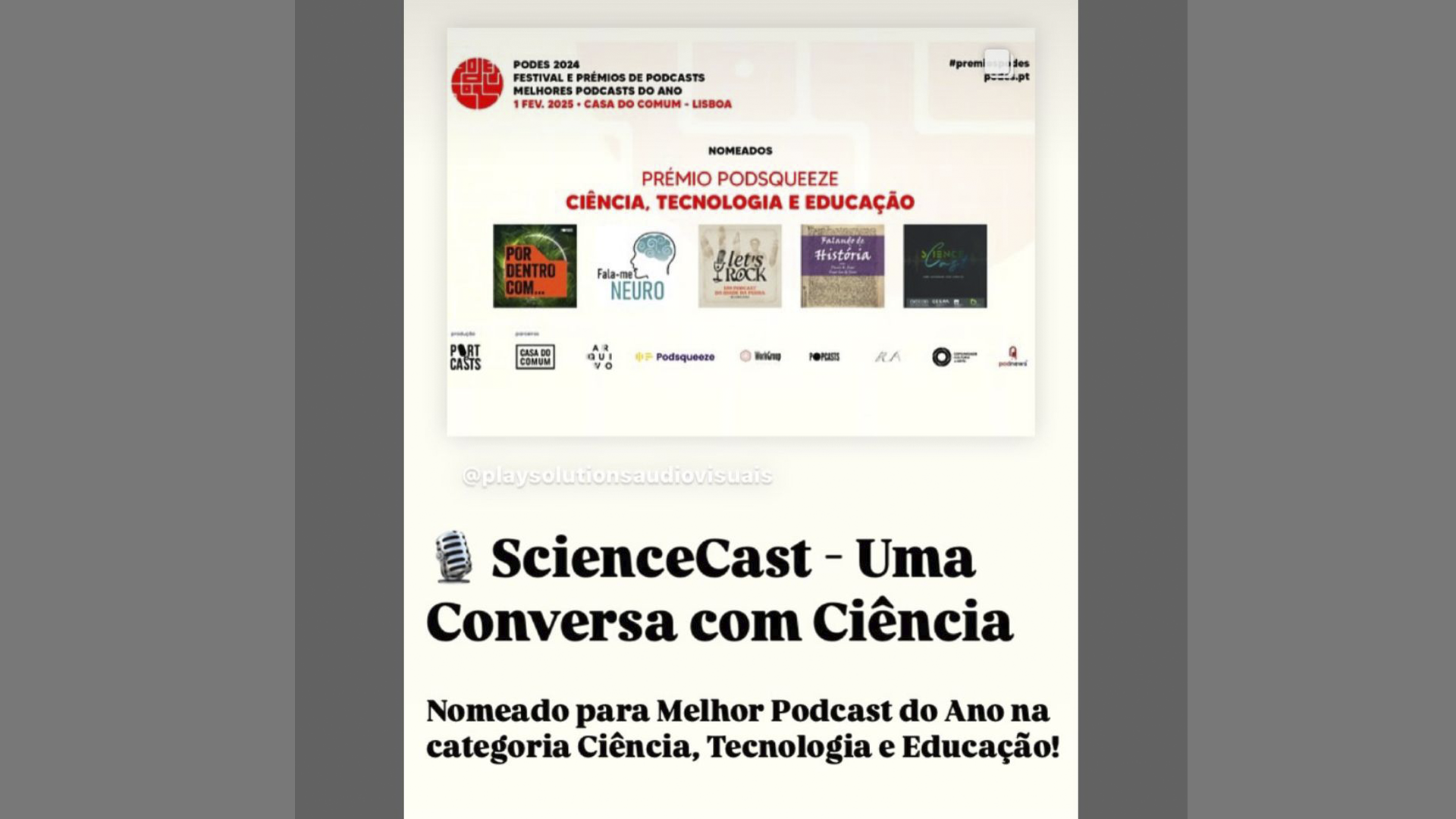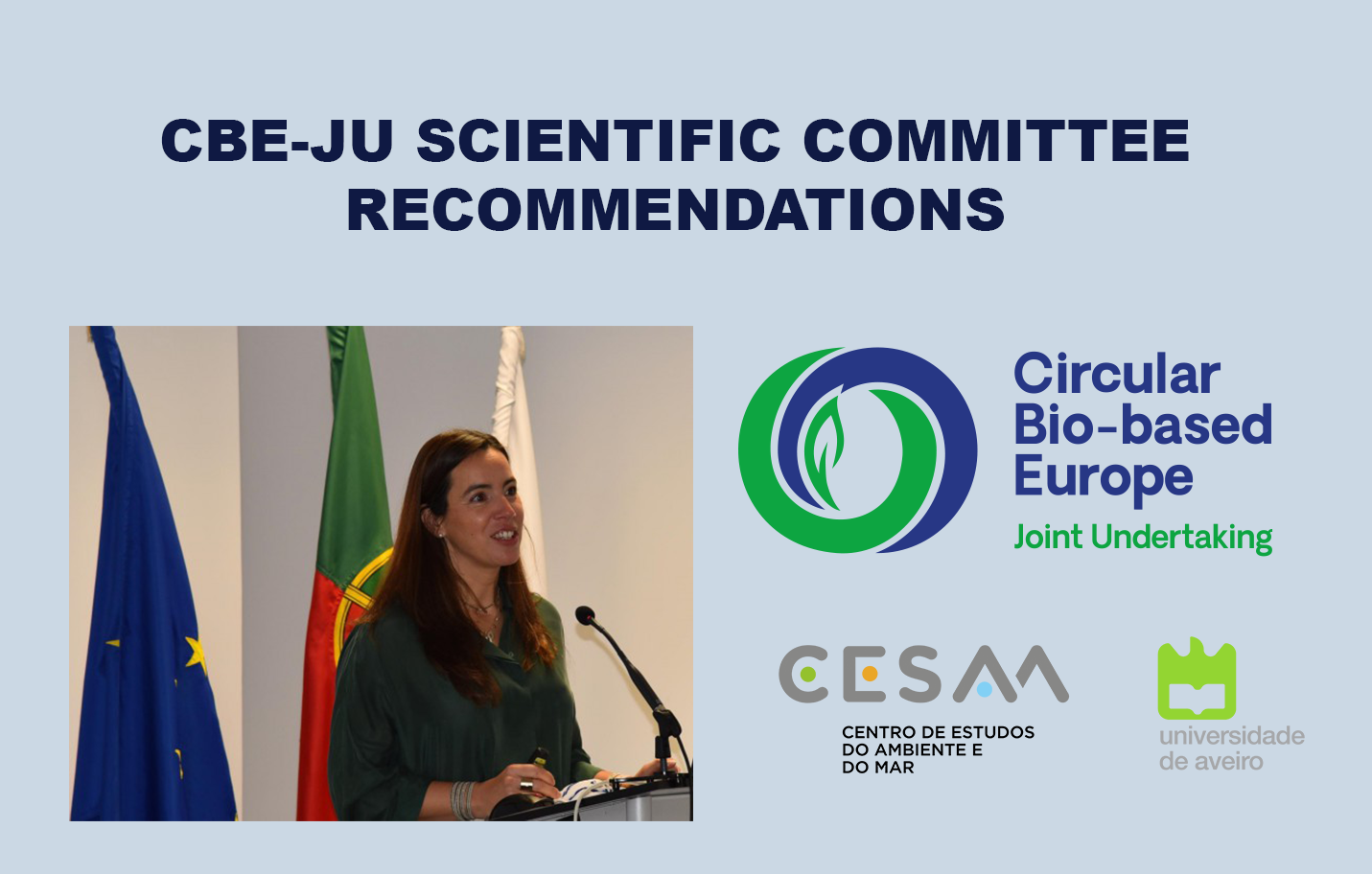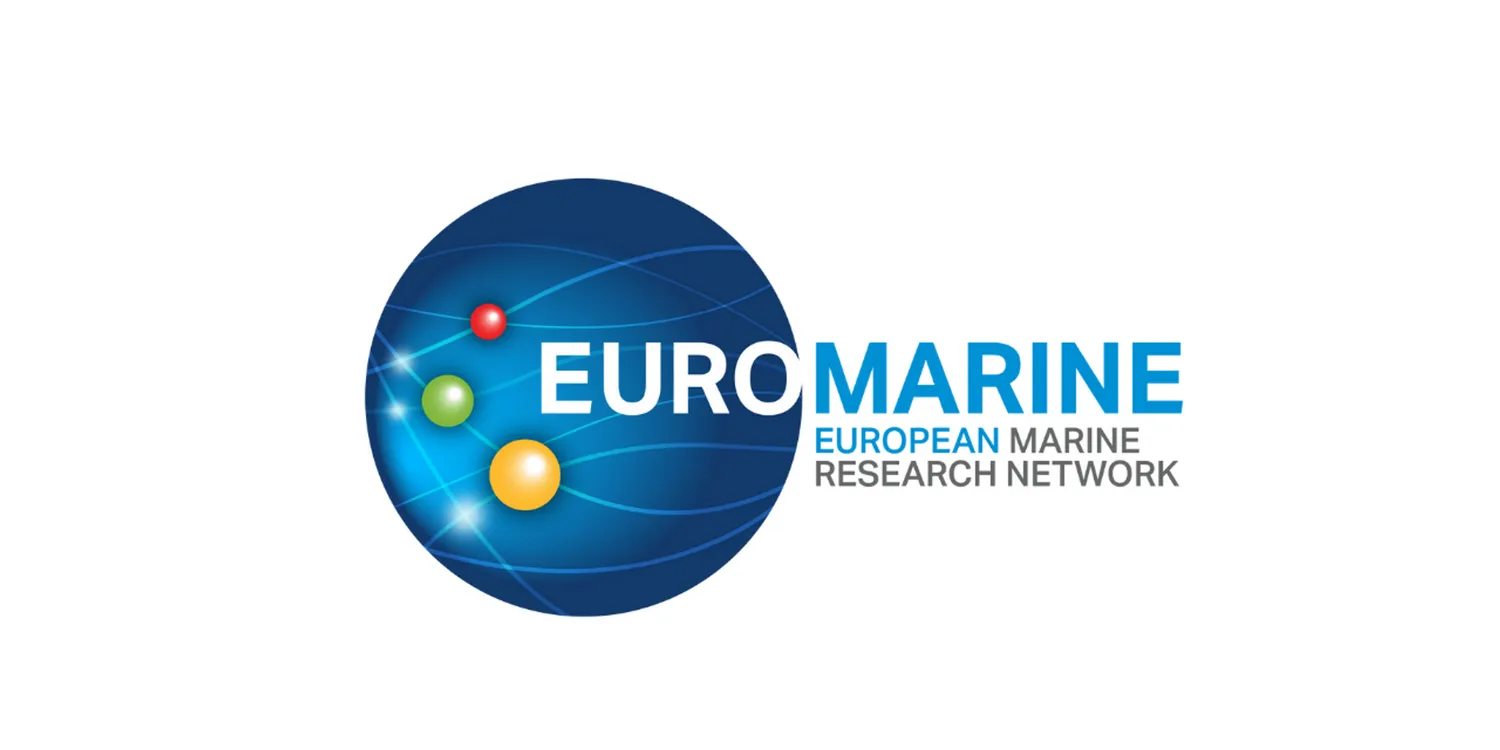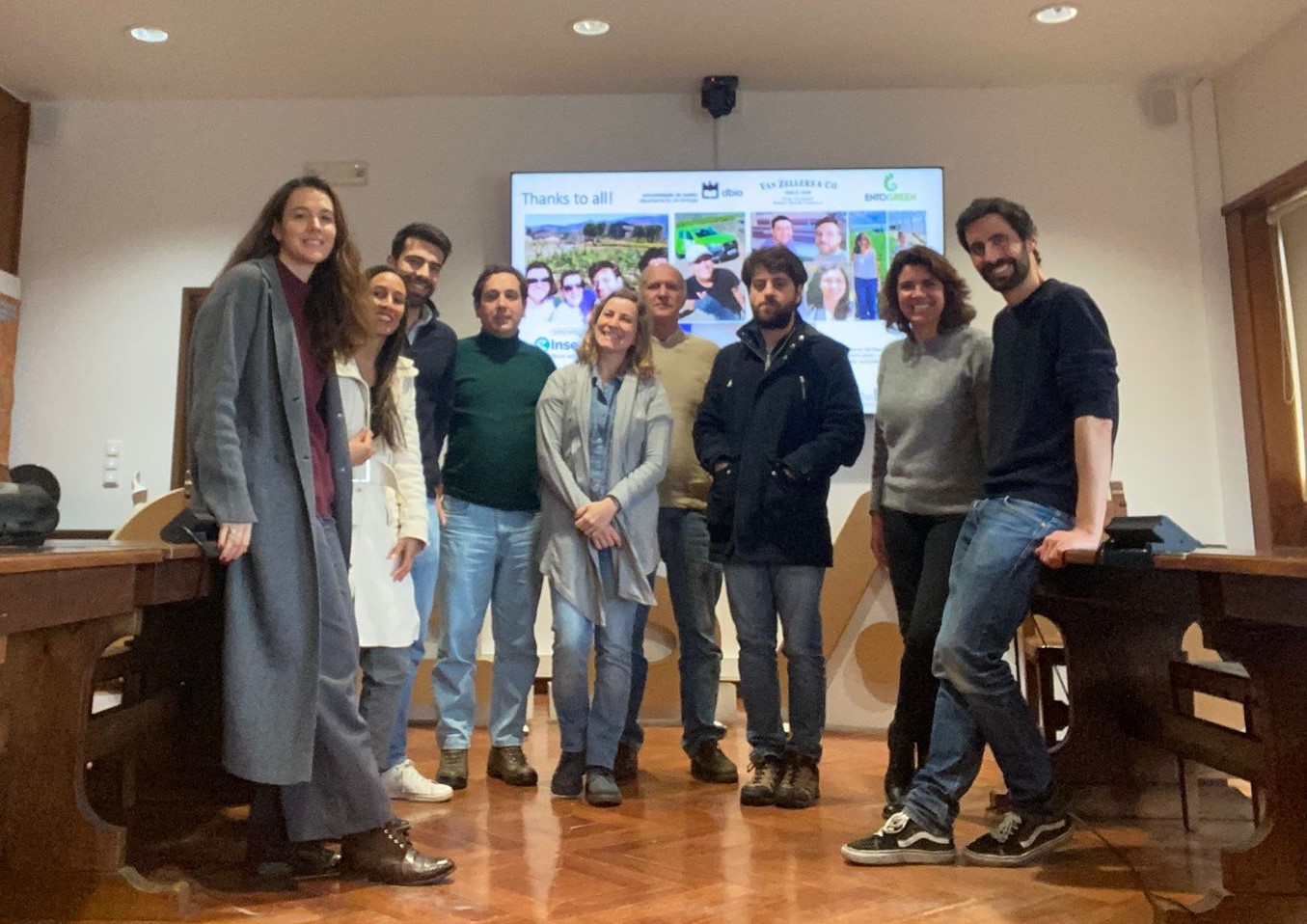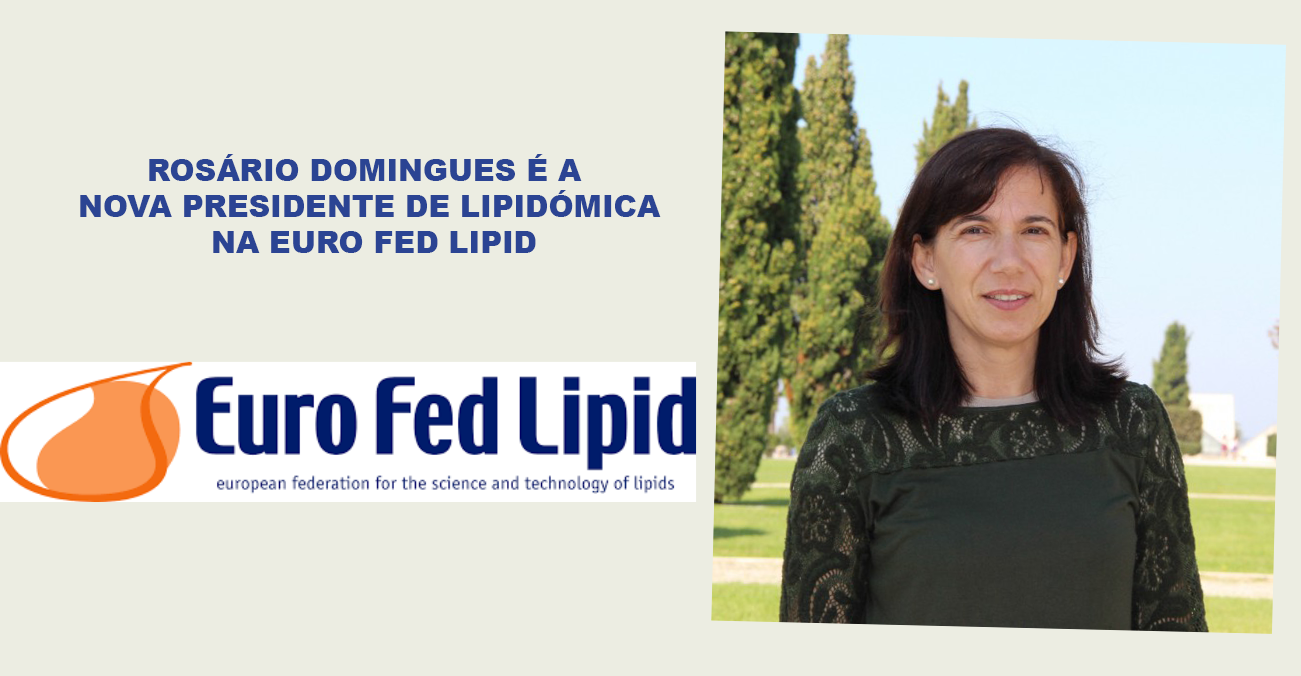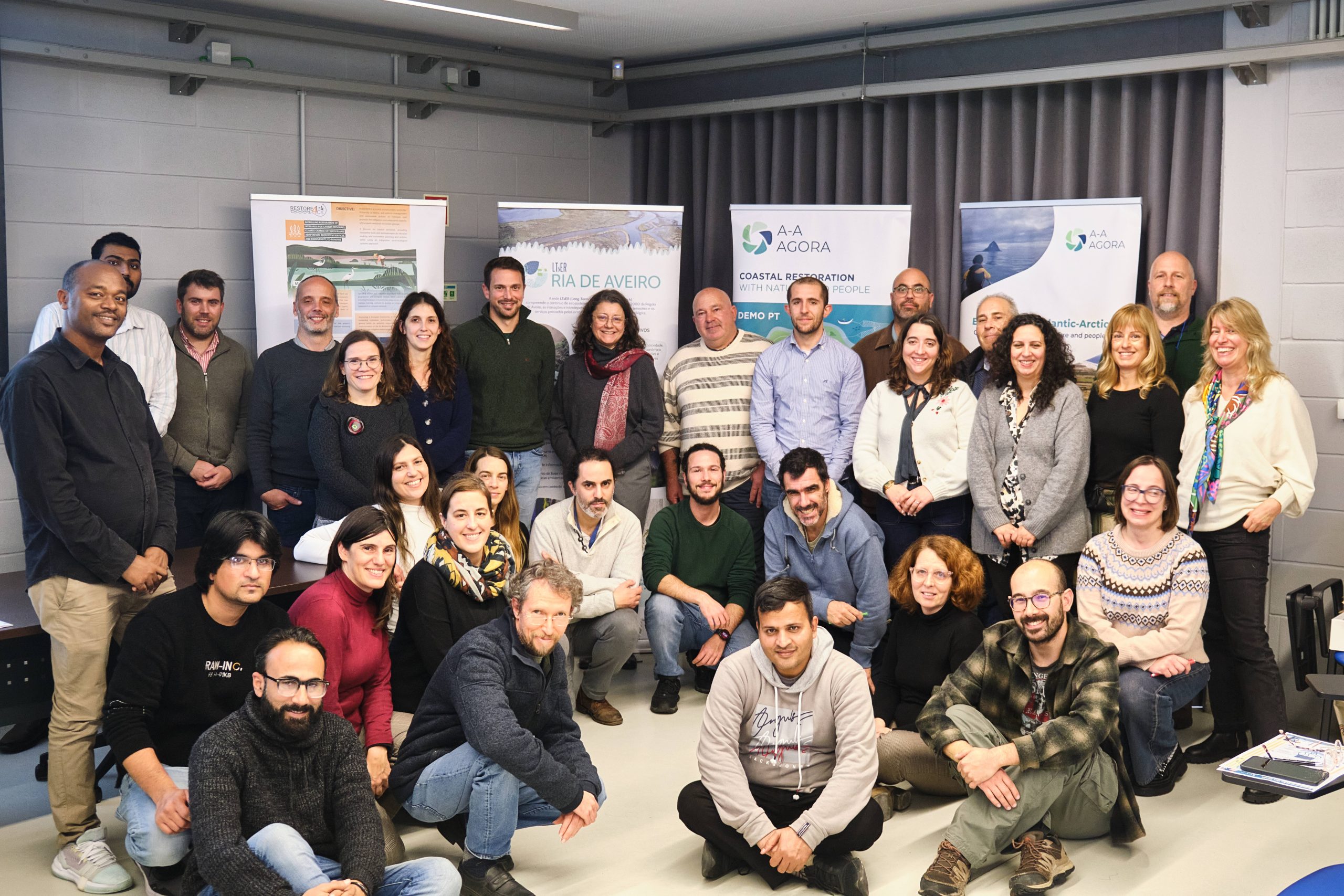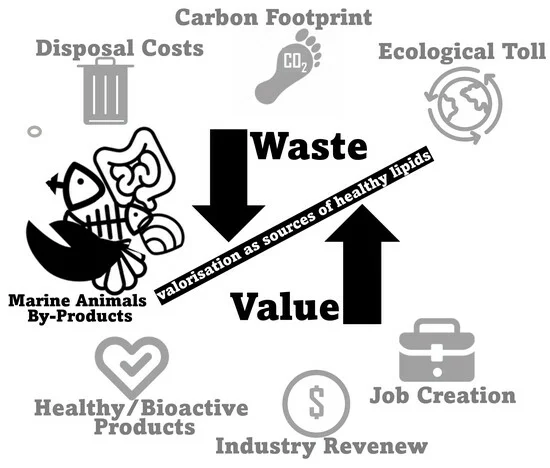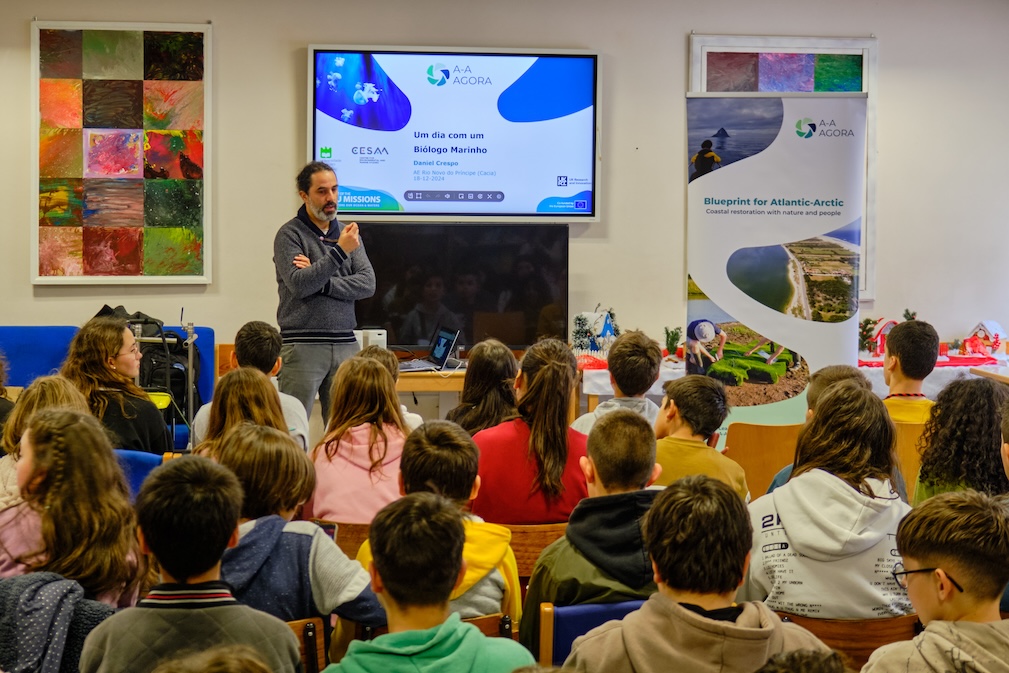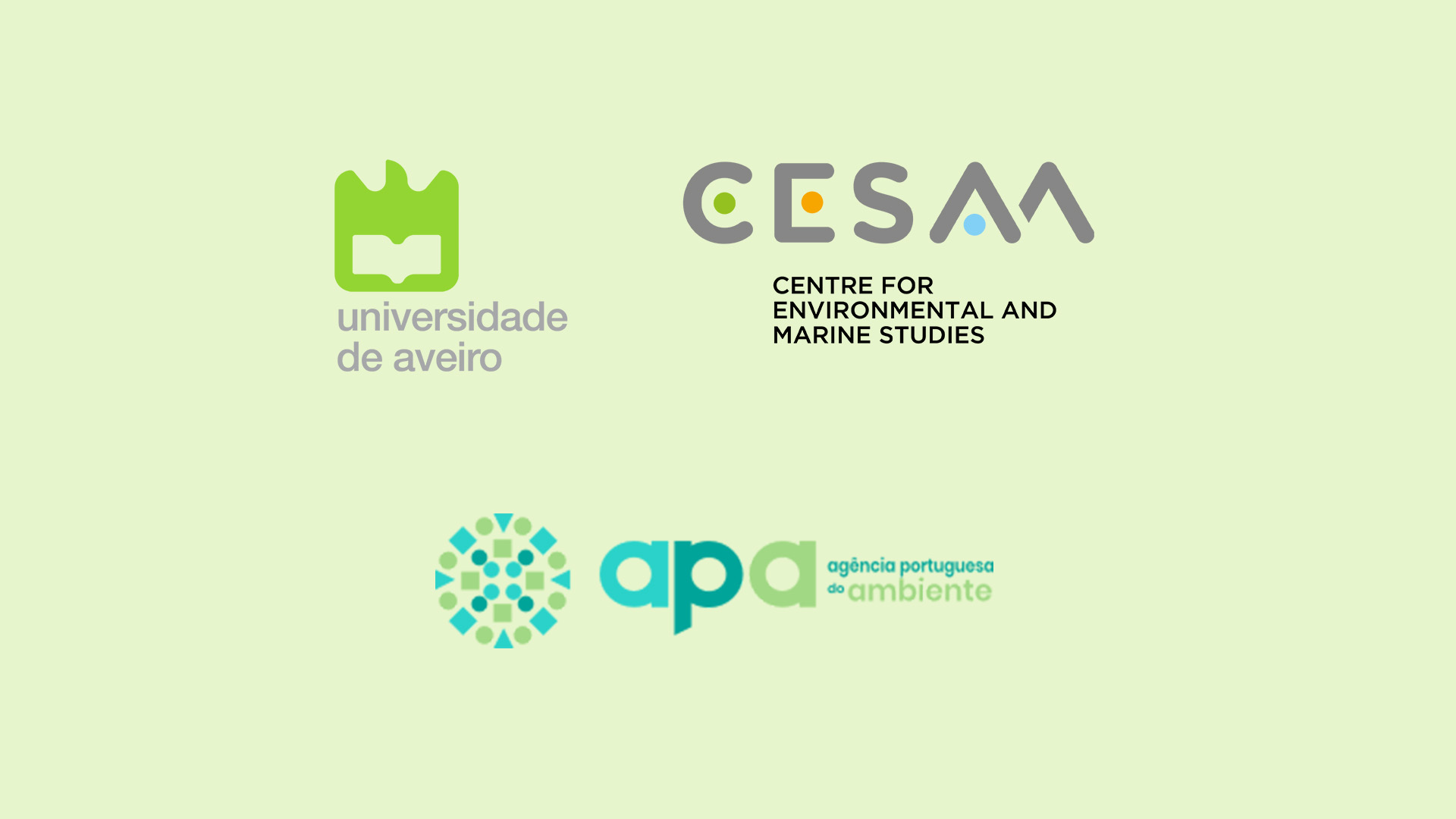The second season of ScienceCast, the podcast that puts science at the heart of the debate, premieres this Thursday (6 February) at 18:00. The first episode of this new season features Amadeu Soares, Full Professor at the University of Aveiro and Director of the Centre for Environmental and Marine Studies (CESAM), one of Portugal’s leading research hubs in environmental and marine sciences.
In this conversation, hosted by Vasco Trigo—a science journalist with extensive experience in radio, television, and print media—key topics such as public policy, scientific research, and the relationship with the environment and the ocean are explored. Amadeu Soares discusses the crucial role of science in political and environmental decision-making, highlighting CESAM’s contribution, as a partner of this podcast, to research on sustainability, biodiversity, and the impact of human activities on ecosystems.
With an academic and professional career dedicated to ecotoxicology and environmental conservation, Amadeu Soares has been a vocal advocate for bridging the gap between science and society. His participation in ScienceCast provides an opportunity to reflect on the challenges our planet faces and the role of scientific research in building a more sustainable future.
“Science must go beyond laboratories and academic publications to bring direct benefits to society. At CESAM, we believe that research only truly fulfils its purpose when it is translated into accessible and useful knowledge for decision-making by citizens, businesses, and policymakers. The environmental and societal challenges we face—ranging from the preservation of oceans, soils, and forests to tackling climate change and pollution—demand an open dialogue between science and society. This is why initiatives like ScienceCast are so important: they bring science closer to the public, simplify complex concepts, and encourage reflection on the urgent need to protect ecosystems and find sustainable solutions for the future. As a partner in this project, CESAM reaffirms its commitment to contributing to a more informed society, capable of addressing the major environmental and social challenges of our time,” says Amadeu Soares, Director of CESAM.
You can see the promo for the episode here.
ScienceCast – Uma conversa com Ciência is a podcast by PlaySolutions Audiovisuais and, in this second season, is partnered with the Centre for Environmental and Marine Studies (CESAM) at the University of Aveiro.
You can watch the first episode of the second season of ScienceCast here.
